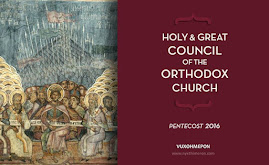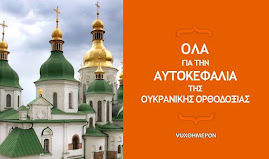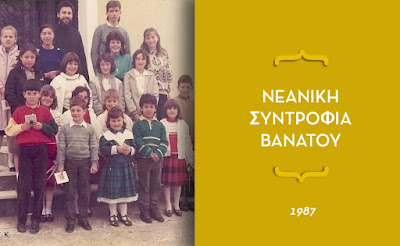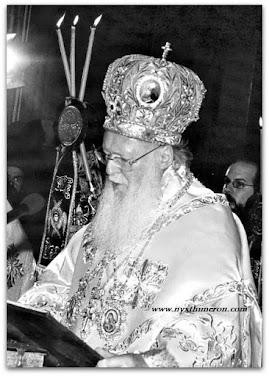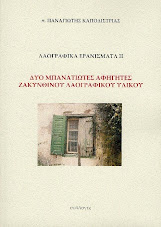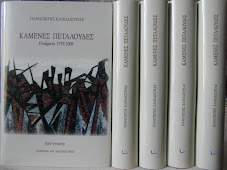ADDRESS
by His All-Holiness Ecumenical Patriarch Bartholomew
Your Eminence Cardinal Parolin,
Your Eminences, Excellencies, Reverend Fathers, and
Distinguished audience,
Your Eminences, Excellencies, Reverend Fathers, and
Distinguished audience,
We would like to express our wholehearted gratitude and appreciation to the President of the “Centesimus Annus Pro Pontifice Foundation” for extending to us a kind invitation on the occasion of your conference “New Policies and Life-Styles in the Digital Age”. It is truly a pleasure to address this distinguished audience gathered here today. Please also accept our warm wishes for the twenty-fifth anniversary of your venerable institution’s foundation (June 13, 1993).
The opportunity to meet in person with other fellow Christians brings us great joy. We are servants of the Lord, who saved us from the bonds of death and opened the gates of Paradise for the human race. We all strive to preserve the sacred inheritance of Christianity, to give “to the end of the earth” (Acts 1:8) the good witness of “common salvation” (Jude 3), that “there is no salvation in any other, for there is no other name under heaven given among men by which we must be saved” (Acts 4:12).
We commend your impressive display of determination to promote the Catholic Church’s social doctrine, as was expressed in the Lenten encyclical “Centesimus Annus”, of the late Pope John Paul II; for, what is, indeed, truly Christian is essentially social. Faith is not limited only to the “soul”, without any interest for the social dimension, but rather, it also plays a pivotal role at the level of society. Our Churches preserve high spiritual values and rich philanthropic traditions. The Church of Rome has a systematic social teaching, which contains solutions to difficult issues in the spirit of the principles of the respect of the person, solidarity, subsidiarity and the common good. On the grounds of these principles, various models were developed and continue to be developed, in order to face social challenges and protect human dignity.
Today, we are facing a serious crisis and its social outcomes on a global scale. We regard this worldwide crisis as a “crisis of solidarity”, an ongoing process of de-solidarization, which puts the very future of humanity at risk. It is our deep conviction, that the future of humanity is related to the resistance against this crisis and the establishment of a culture of solidarity.
So, how, then, does this crisis of solidarity come to be? And, what are its parameters and the areas of society within which it appears? To answer these questions, we now refer to three fields where this occurs:
a) The field of economy and ecology
In recent years, we have experienced an immense economic crisis that is connected to the process of globalization and its ensuing implications, the surrender of culture to economy, the increase of poverty, famine and scarcity, and the tragedy of mass migration. We evaluate the so-called “fundamentalism of the market”, the deification of profit, the association of dignity with property, the reduction of the human being to homo oeconomicus and the subordination of the human person to the tyranny of needs, as extremely serious contemporary threats to a culture of solidarity. Society is being transformed into a gigantic market, social achievements are shrinking and the gap between rich and poor is widening. The right of the economically powerful and the pursuit of the greatest possible profit are considered to be the only way to achieving economic growth. It appears that the human race, with its expanded and insatiable needs, is inclined to eradicate humanity’s spiritual heritage. Even children are being systematically converted through the educational system into consumerists. As was rightly said, childhood itself has basically become an “economic category”. In the end, we are convinced that the exclusive orientation of economic activity towards the maximization of profit does not function either for sustainable economic development, or for the common good. It essentially breaks up humanity into privileged and underprivileged, and it becomes an expression of a lack of solidarity, which is, naturally, not able to form a steady foundation for the future.
In recent years, we have experienced an immense economic crisis that is connected to the process of globalization and its ensuing implications, the surrender of culture to economy, the increase of poverty, famine and scarcity, and the tragedy of mass migration. We evaluate the so-called “fundamentalism of the market”, the deification of profit, the association of dignity with property, the reduction of the human being to homo oeconomicus and the subordination of the human person to the tyranny of needs, as extremely serious contemporary threats to a culture of solidarity. Society is being transformed into a gigantic market, social achievements are shrinking and the gap between rich and poor is widening. The right of the economically powerful and the pursuit of the greatest possible profit are considered to be the only way to achieving economic growth. It appears that the human race, with its expanded and insatiable needs, is inclined to eradicate humanity’s spiritual heritage. Even children are being systematically converted through the educational system into consumerists. As was rightly said, childhood itself has basically become an “economic category”. In the end, we are convinced that the exclusive orientation of economic activity towards the maximization of profit does not function either for sustainable economic development, or for the common good. It essentially breaks up humanity into privileged and underprivileged, and it becomes an expression of a lack of solidarity, which is, naturally, not able to form a steady foundation for the future.
Next, the ecological problem is an issue that is closely related to economic development, which is something that is constantly growing. Extreme economism causes both serious economic and ecological problems. An economy that is autonomized from a human being’s real needs, unavoidably leads to the exploitation of nature and the destruction of the natural environment. We singlehandedly destroy the conditions of humanity’s survival and coexistence in the name of short-term profit and benefit. It is self-evident that the consequences of the ecological problem, which first and foremost affect those individuals who are socially and economically weak, constitute a serious threat for social cohesion and increase de-solidarization.
b) The field of science and technology
The rapid progression of science and technology, together with its beneficial consequences, also leads to outcomes that do not promote a culture of solidarity. Technology is no longer man’s servant, but instead is his primary driving force, which requires complete obedience, as well as imposes its own principles on all aspects of life. The almighty electronic means of communication do not simply disperse information, but also broadcast values—their own values—they reshape our views regarding the meaning of life, they direct our needs, thereby creating artificial needs, and they lead the way to a future that is dominated by them. The charm of technological achievements leads to the identification of progress with technological progress. We worship technology and its highest symbol—the computer—as our god, while simultaneously expecting to receive all our benefits, joy, communication, progress, information, jobs, etc, from it. The homo faber becomes homo fabricatus. In fact, we face a plethora of problems that are not of technological nature and can’t be solved through the accumulation of more information. Social injustice, divorces, violence, crimes, loneliness, fanaticism and the clash of civilizations are not caused by a lack of information and technology. We see that some of these issues are actually growing hand in hand with the technological progress of society.
The rapid progression of science and technology, together with its beneficial consequences, also leads to outcomes that do not promote a culture of solidarity. Technology is no longer man’s servant, but instead is his primary driving force, which requires complete obedience, as well as imposes its own principles on all aspects of life. The almighty electronic means of communication do not simply disperse information, but also broadcast values—their own values—they reshape our views regarding the meaning of life, they direct our needs, thereby creating artificial needs, and they lead the way to a future that is dominated by them. The charm of technological achievements leads to the identification of progress with technological progress. We worship technology and its highest symbol—the computer—as our god, while simultaneously expecting to receive all our benefits, joy, communication, progress, information, jobs, etc, from it. The homo faber becomes homo fabricatus. In fact, we face a plethora of problems that are not of technological nature and can’t be solved through the accumulation of more information. Social injustice, divorces, violence, crimes, loneliness, fanaticism and the clash of civilizations are not caused by a lack of information and technology. We see that some of these issues are actually growing hand in hand with the technological progress of society.
Never before have we possessed so much scientific knowledge and acted so violently and destructively against nature and our fellow human beings. We even continue to produce terrible weapons of mass destruction and risk the possibility of a nuclear world war. In the West, the explosion of knowledge and information fostered disinterest towards other people, as well as a spirit of individualism and deification of property; whereas, in other regions of the world, technology easily coexists with social injustice and religious fundamentalism. The Holy and Great Council of the Orthodox Church that convened in Crete in June 2016, stated that “scientific knowledge does not motivate man’s moral will” (Encyclical, par. 11). Similarly, the Catholic Church, in the Final Document produced by the Pre-Synodal Meeting that took place in Rome last March, entitled “Young People, the Faith and Vocational Discernment”, expressed the following remarkable view:
While technology has, for some, augmented our relationships, for many others it has taken the form of an addiction, becoming a replacement for human relationship and even God ... Paradoxically in some countries technology and particularly internet is accessible while the most basic needs and services are still lacking.
Another fact is that scientific and technological progress do not provide answers to the deepest existential problems of the human being, nor do they eliminate them. Hence, science, the “great power”, is not almighty after all! The dominance of machines, the deterioration of human relations and the chaos of information do not benefit solidarity and the interest for common good. Rather, they individualize the human person and imprison him to a virtual reality. The autonomization of science and technology from man’s vital needs, his various dependencies, which he creates in conjunction with economism, scientism and extreme experiments with human nature, constitute a great danger to a society of solidarity.
c) The field of society and politics
One of the more dangerous contemporary tendencies for a culture of solidarity, is individualism, self-idolization and self-entrapment to egotistic self-sufficiency, which creates chasms between people. The dominating words of today are “me”, “myself”, “mine”, “autonomy”, “self-realization” and “self-admiration”. Individualism is accompanied by eudemonism, whose aim in life is the satisfaction of as many needs as possible, as well as the creation and securing of new needs. As has been clearly stated, the “ζῶον λόγον ἔχον” today has become “ζῶον ἔχον”, homo habens, who is fed by the possession of material goods, as well as by the possession of his own individuality—a bearer and expresser of not only the “foolish rich man’s” greed and avarice (Luke 12:17-21), but also of the “Pharisee’s” auto-soteric vanity (Luke 18:10-14). It is only natural, then, that this possessive relationship with all people and all things, as well as with our own self, does not leave any space for love and solidarity, for sharing and communion.
c) The field of society and politics
One of the more dangerous contemporary tendencies for a culture of solidarity, is individualism, self-idolization and self-entrapment to egotistic self-sufficiency, which creates chasms between people. The dominating words of today are “me”, “myself”, “mine”, “autonomy”, “self-realization” and “self-admiration”. Individualism is accompanied by eudemonism, whose aim in life is the satisfaction of as many needs as possible, as well as the creation and securing of new needs. As has been clearly stated, the “ζῶον λόγον ἔχον” today has become “ζῶον ἔχον”, homo habens, who is fed by the possession of material goods, as well as by the possession of his own individuality—a bearer and expresser of not only the “foolish rich man’s” greed and avarice (Luke 12:17-21), but also of the “Pharisee’s” auto-soteric vanity (Luke 18:10-14). It is only natural, then, that this possessive relationship with all people and all things, as well as with our own self, does not leave any space for love and solidarity, for sharing and communion.
Today, human rights, which form the core of contemporary political culture, are yet another topic that is connected to the problem of solidarity. The West has always given emphasis to individual rights, and that has unfortunately led to their identification with individualism. On the other hand, non-western civilizations—invoking the West’s understanding of human rights—reject individual rights and base upon this their entire negative stance against the culture of modernity.
Certainly, the Universal Declaration of Human Rights, which celebrates its seventieth anniversary this year, characterized itself “as a common standard of achievement for all peoples and all nations”. This way, human rights are considered to be a universal humanistic criterion, which is able to function as the “yarn of Ariadne” inside the labyrinth of contemporary pluralism. Today, though, this function of human rights is disputed by the postmodern understanding of pluralism in the sense of the unfolding devaluation and reevaluation of traditional values, the waning or non-existent consensus in terms of common standards, the complete rejection of any general criterion, the fetishism of indifference, extreme subjectivism and the dominance of “parallel monologues”.
When confronted with these contemporary givens and tendencies, what should the required stance for us Christians be? Two things are certain. First, that we cannot ignore this immense crisis of solidarity, because economic and social problems affect human beings at the very core of their existence and dignity. And, second, that nobody can face these problems alone. We need each other; we need a common agenda, common mobilization, common efforts and common goals. It is our deep conviction that in this effort, the contribution of our Churches remains crucial. They have preserved high values, precious spiritual and moral heritage, and deep anthropological knowledge.
Over the last decades, we have witnessed a reevaluation of the role of religion for human existence. It is not by chance that, in our present day, the talk about the coming “post-religious age” has been replaced by the discourse of a “post-secular period”, in which religions claim and play a public role and join all the remarkable efforts of humankind. As Pope Emeritus Benedict writes, “complete secularity (Profanität), which was developed in the West, is something deeply foreign for the civilizations of the world. They are convinced that a world without God does not have any future (J. Ratzinger, Werte in Zeiten des Umbruchs, Herder, Freiburg/Basel/Wien 2005, pg. 88). For His Eminence Walter Cardinal Kasper, it is a commonly accepted truth that “every society needs institutions of transcendence”, which publicly represent the “dimension of the Divine”. The modern attempt to found society on atheistic or religiously indifferent principles has failed (Zukunft aus dem Glauben, Grünewald, Mainz 1978, 90). It is certain, though, that the repulsion of Transcendence extinguishes the creative powers of man, paralyzes hope and feeds cynicism.
On the contrary, our faith strengthens our commitment of human action, and it widens our witness for freedom, justice and peace. We are all called to common responsibility for the common good. We must work towards solutions for the challenges that we jointly face. Our anthropology, our image of the human being and the purpose of his and her life, define our attitude toward humanity and social action. If we see the human being as homme machine, we can easily transform the human person into an object. If we regard the human being as a person (prosopon) created “in the image” of God, then our attitude changes. Evidently, a general orientation to the idea of “human being” is insufficient, because we can presuppose that this human being is only interested in the fulfillment of its insatiable needs. Man must be approached in his relation to God and in respect to his eternal destiny.
A human being is not only a citizen of the world but also a citizen of heaven (οὐρανοπολίτης)—a creature longing for eternal life. The Orthodox Tradition regards the human being as “ζῶον θεούμενον”, a living being to be deified, which provides human beings with the utmost dignity, underscoring true humanization and the plerome of its God-given freedom in the Body of Christ, the Church, which is called by the Fathers “κοινωνία θεώσεως”, that is, communion of deification. “God became man so that we might become God” (Athanasios the Great).
“There is nothing as sacred as a human being, whose nature God Himself has shared” (Nicolas Cabasilas, The Life in Christ). Indifference for man is indifference towards God and His Commandments. God is present, wherever love, fraternity, and solidarity exist. The famous biblical parable of the Good Samaritan (Luke 10:25-37) describes the spontaneous compassion and support for the suffering person, despite the fact that this person was a foreigner, or even an “enemy”. Another impressive truth in this parable is expressed in the answer of Jesus to the initial question “Who is my neighbor?” For Jesus, the truth of love is to become a “neighbor” for everybody who needs support.
His Holiness Pope Francis eloquently refers to the truth of limitless love towards our neighbor in his conversation with Andrea Tornielli on the occasion of the “Year of Divine Mercy” (March 13, 2015 – November 20, 2016), stating that:
We have received without having done anything to deserve it, and as a consequence, we offer without asking for something in return. We are called to serve Christ—who died on the Cross—in the face of every marginalized person. We recognize the Lord in every human being who is abandoned, hungry and thirsty, who is naked and in prison, sick or unemployed, in persecution or in flight. That is where we meet our God, where we directly touch the Lord. Christ Himself told us this when He announced to us on which grounds we are to be judged: “inasmuch as you did it to one of the least of these My brethren, you did it to Me” (Matthew 25:40). (Der Name Gottes ist Barmherzigkeit, Kösel, München 2016, 125)
At this point, the words of Gregory the Theologian come to our mind: “While there is time, let us visit Christ, let us heal Christ, let us nourish Christ, let us clothe Christ, let us welcome Christ, let us honor Christ” (On Love of the Poor, pg. 35, 909).
In this spirit, we regard the present multifaceted crisis as an opportunity for practicing solidarity, for dialogue and common action, for communication and cooperation, for openness and confidence, and for continuing the long and impressive Christian tradition of philanthropy. Today, our Churches are called to function as a positive challenge to individuals and peoples, offering an alternative model of life within the contemporary culture that bestowed humanity with precious gifts, but at the same time seems to push people to live for themselves, ignoring the others with whom they are sharing the same world.
Our Churches resist injustice and all anti-personal powers that undermine social cohesion by putting forth the social content of the Christian Gospel. They exercise critique on the declaration of the rise of economic indicators to the absolute criterion of economic activity and the subordination of the human being to consumerism. In this spirit, the Ecumenical Patriarchate declared the year 2013 as a “year of universal solidarity”. In our Patriarchal Encyclical, we articulated the conviction that the ongoing worldwide economic and social crisis expresses a lack of solidarity. Solidarity with the human being and solidarity with creation are the presuppositions not only of peaceful coexistence, but even the sheer survival of humanity. Our aim was to sensitize individuals and peoples to poverty and the great inequalities that exist in the world. We underlined the necessity for initiatives to relieve those who are needy, and to ensure the right that every human being enjoys the essential goods of life.
The chief model of economic development dangerously escalates environmental problems and functions against the true interests of man. Since no viable economic development can exist at the cost of the natural environment, the organizational model of the economy within the framework of globalization ought to be replaced by ecological economy—an economy that has at its center the real interests of man, which are served only within an intact environment.
We consider the approach of the ecological crisis in connection with social problems to be especially important. It is Pope Francis’ and our common belief that the current economic developments within the framework of globalization destroy social cohesion, solidarity and the overall function of interpersonal relations. It is precisely this spirit that the Encyclical Laudato Si’ (2015) and our Common Message with Pope Francis “On the World Day of Prayer for Creation” (September 1, 2017) express. From the very beginning, we have supported the idea that serving our fellow human beings, preserving nature, environmental justice and social justice, are inextricably interconnected. It is quite characteristic that the Roman Catholic Church started by addressing social matters and continues its way to the Laudato Si’ Encyclical in 2015, which has the ecological issue at its core; while the Ecumenical Patriarchate, which in 1989, began concerning itself with the care for the natural environment, today finds itself also engaged in a struggle for a culture of solidarity, for the protection of the sacredness of childhood, for the support of refugees, as well as in initiatives against modern slavery. Therefore, it was natural and beneficial for us to meet in our journey.
It is impossible for our Churches to maintain a stance of indifference when confronted with scientism, which converts the human being into a measurable object. Churches stress that the human person encapsulates dimensions that are unattainable to science. Our Churches, therefore, express their concern against this autonomization of science and technology from the vital needs of the human being, against the dependencies that are created and the dangers that follow.
We worry for our endangered freedom, for our precious traditions that are being lost and for the natural environment that is being destroyed. We are concerned about the fact that, as Pope Emeritus Benedict somedays before his election stated, “the moral power of the human being has not increased in parallel with the progress of science, but rather it has been reduced ... this disparity between technical capacities and our moral faculty is the greatest threat at this moment in history” (Vortrag in Subiaco, Kloster der Hl. Scholastica, 1. April 2005).
We are also aware that whatever is scientifically and technologically feasible, does not necessarily mean that it is also essential and good. It is self-evident that the criticism against the deification of technology does not necessarily mean the devaluation of the beneficial works of scientific and technological progress. Science and technology have a human dimension and contribute to the solution of humanity’s problems today. Nevertheless, nothing amplifies the arrogance of contemporary man as much as faith in almighty science and technology. The future, though, does not seem to belong to the self-ordained “man-god” (ἀνθρωποθεός), who as a new “Prometheus” ignores or even abolishes limits and measures, as well as destroys the conditions of life on the earth. We remind the admirers of scientism and “technopoly” that real progress does not exist when the human person and his freedom are being undermined.
From our Churches’ point of view, the future does not belong to the individual who concerns himself with his own self, but to the overcoming of this self-centeredness. Real freedom is the exit from our own self. As has been properly stated, “the door to freedom only opens towards the outside”. The Church, as “a communion of relations”, as the foremost space of “the culture of personhood”, constitutes a great challenge for the contemporary individual-centric civilization, and for the auto-soteric narcissism of contemporary man and woman. Her ascetical ethos is offered as an alternative proposal of life to the homo habens, who identifies his own eudemonia with “having” and the multiplication of his own satisfied needs. It is imperative and crucial to promote and develop, in action, the social workforce of our Christian faith—the loving relation with our fellow human beings.
Our common Christian agenda also encompasses dialogue with human rights. We are obliged to separate the humanistic essence and impetus of human rights from the individualistic understanding of the right. The generally negative stances of some Churches against human rights are not based predominately on theological criteria, but on historical circumstances and mutual prejudices. In the dialogue with human rights, our Churches have the ability to promote their humanitarian and philanthropic views, as well as to point out that the claim of rights does not constitute the highest ethos, which for them is the free renouncement from our own individual rights in the name of the ἀγάπη that “does not seek its own” (1 Corinthians 13:5). The Holy and Great Council of the Orthodox Church emphasized that “the Orthodox ideal in respect of man transcends the horizon of established human rights and that ‘greatest of all is love’” (Message, par. 10). Indeed, the history of freedom does not begin with the history of modern human rights.
Dear distinguished Participants,
In the title of our address, “A Common Christian Agenda for the Common Good”, we come across the word “common” twice. The Church is in fact the place of the “common”: “common” salvation, “common” freedom, “common” good, “common” ethos and “common” obedience. Life in the Church is a foretaste and an expectation of the “common resurrection” and the “common kingdom”. We are not a sum of individuals, but a community of persons—a community of love. In the Church, the “καινόν”, the “new”, is the “κοινόν”, the “common”. The Church of Christ is “the miracle of the new” in the life of the world, a sign of the final renewal of all things: “Behold, I make all things new” (Revelation 21:5). It is not a coincidence that Apostle Paul characterizes the community of faithful as a community of hopeful, while referring to the people outside of it as those “who have no hope” (1 Thessalonians 4:13).
The entire mystery of Divine Economy is experienced liturgically in the Divine Eucharist. The Church celebrates the Eucharistic Liturgy “bringing together (1 Corinthians 11:20) the scattered children of God (John 11:52) without regard to race, sex, age, social, or any other condition into a single body where there is neither Jew nor Greek, there is neither slave nor free, there is neither male nor female (Galatians 3:28; cf. Colossians 3:11) in a world of reconciliation, peace and love”, which depicts the eschatological Kingdom of God (Text of the Holy and Great Council of the Orthodox Church, The Mission of the Orthodox Church in Today’s World). It is rightly held that the Divine Eucharist is the core of ecclesiastical life. The rest of the sacraments, worship and spiritual life, canonical structure and the philanthropic witness of the Church in the world, are nourished by the Eucharist, and they express the eucharistic identity of the Church.
In the communion of the Church, mind and heart, faith and knowledge, freedom and love, the individual and society, the human being and the entirety of creation are all reconciled. It is for this very reason that the Church resists the powers of division, individualism and totalitarianism, oppression and exploitation, economism and consumerism, scientism and the deification of technology, as well as the destruction of the natural environment and anthropomonism. The response to the divisions and the impasses of human freedom is the Incarnate Logos of God.
Today and always, the image we have for ourselves, for our place in the world and for our destination, determines our stance in life. The Christian tradition does not have solutions and answers ready for every single problem that exists. Rather, our faith is an inexhaustible source of crucial truths for human beings and the world, for our relation to God, to ourselves, to others and to creation, for our freedom, for the meaning of life and the final destination of all. The Church offers help and truth, it orients the human being towards eternity and does not allow for him to be reduced to a sheer living being, nor to become an Übermensch. For Pope Francis and us, the identity and value of a culture or a society cannot be judged by the level of its economic growth, its technological development or its social organization. In fact, while these are important elements, they are not the essence of a civilization. A civilization is judged by whether or not its final point of reference is the human person, in relation to his true divine destiny and the protection of his world.
We reject the cynical phrase “There is no alternative”. In other words, we reject the claim that non-conformity to the commandments of globalization and to the “autonomy of the economy”, leads inevitably to the expansion of poverty and to uncontrollable societal developments and conflicts. It is unacceptable for the alternative forms of development and the strength of social solidarity and justice to be ignored and slandered. Our Churches can create new possibilities of transformation for our world. In fact, the Church itself is an event of transformation, of sharing, of love and of openness. It is utopic to believe that solidarity and social cohesion can be achieved through globalization and the raising of living standards, or through the internet and communication.
In our Churches, we experience the blessed certainty that the future does not belong to “having” but to “being”, not to “pleonexia” but to “sharing”, not to selfishness but to communion —nor does it belong to division but to love. “God is love, and he who abides in love abides in God, and God abides in him” (1 John 4:16). We continue our common journey, our theological dialogue, our common struggle and our common Christian witness of love—the preeminent transformative power—as the Lord instructed us. Love and diakonia are the essence of the freedom (ἐλευθερία) in which “Christ has set us free” (Galatians 5:1).
We thank all of you for your kind attention!














































